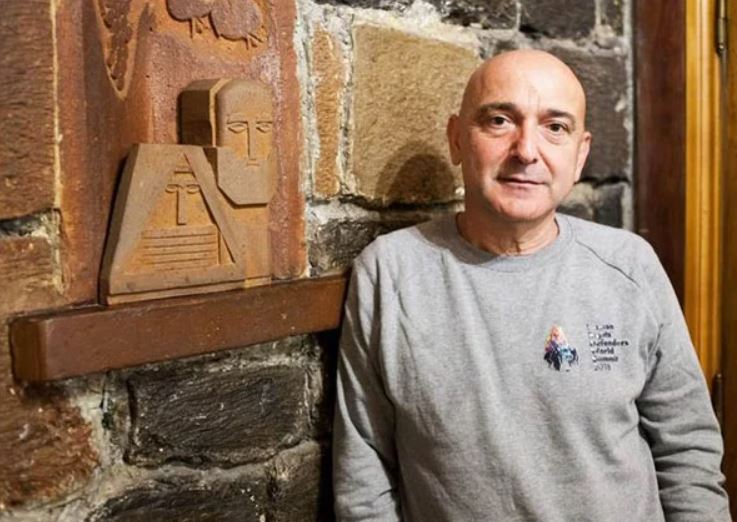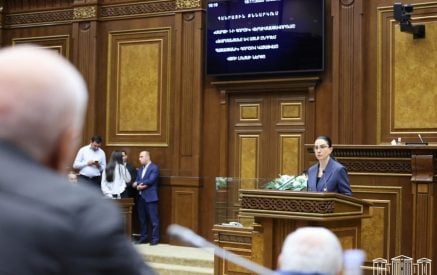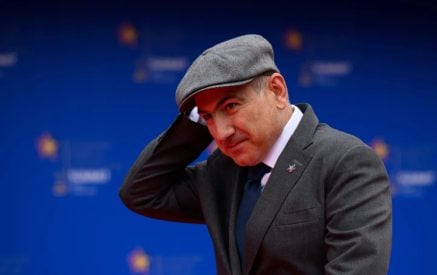A video was spread online where the first President of Armenia, Levon Ter-Petrossian, offered the authorities of Artsakh to sign a secret document between the two Armenian states. That video was taken on June 14, 1993, in Stepanakert. Under the secret agreement, Ter-Petrossian proposed to the authorities of Artsakh to agree to the OSCE Minsk Group peace initiative and to commit to accurately fulfilling all the requirements of the peace plan related to Artsakh. In particular, in February of 2008 before the presidential election in Armenia, presidential candidate Robert Kocharyan said that Levon Ter-Petrossian was putting pressure on the Artsakh authorities, demanding that they hand over the Karvachar region to Azerbaijan. In 2009, journalist Gegham Baghdasaryan, who allegedly attended the discussions at the Artsakh government, wrote in the Analyticon magazine in February that Ter-Petrossian insisted that there was a lot of pressure on Armenia and Russia would not give us weapons.
In connection to this, Aravot Daily asked the coordinator of the Nagorno-Karabakh Committee of the Helsinki Initiative 92 and activist from Artsakh, Karen Ohanjanyan, if Levon Ter-Petrossian was trying to take anti-Artsakh actions at the time. He said, “At that time, Kelbajar was of great and decisive importance for the existence of Nagorno-Karabakh in terms of the development of hostilities. That is why the Artsakh authorities and the NKR National Assembly were against it and opposed him. But Levon Ter-Petrossian and the Armenian authorities made great efforts to persuade the Artsakh authorities to compromise and let go of the liberated territories. And what is being interpreted now is that Levon Ter-Petrosyan once said that we should give the lands in exchange for peace, etc., but those territories were occupied for the very purpose that we will take a lot of territories for future exchange. But the development of the processes in the NKR led to the fact that Karabakh alone could ensure its security and have autonomy, of course, with the help of the army. These components were important for international law to recognize autonomous republics. We began to develop buffer zones, the so-called occupied territories, and the rate of economic growth already touched on possible predictions that, as a republic, it would take shape.
And what happened today was just Russia’s deal with Azerbaijan and Turkey to sell Karabakh and receive political and economic dividends in return. We know that Russia is now under great economic sanctions, and there is pressure. Russia has made similar attempts in the past, in April 2016, but at that time Karabakh’s military leadership was stable and disorganized, as under Nikol Pashinyan, and they resisted and dealt a crushing blow to Azerbaijan’s ambitions by crushing a group of hundreds of tanks moving toward Stepanakert. And that became the deciding factor. This time we lost that moment to strike immediately and we saw that the result, by and large, is the loss of Artsakh’s statehood. It is only Nikol Pashinyan’s fault, who, when he came to power, demoralized all the armed forces and removed all the famous military leaders and commanders from their posts. Military work is an art and it is achieved through years of work. He destroyed that military structure, did not create anything, and could not manage an efficient army that could make the right decisions in times of crisis. The lack of correct military decisions led to today’s failure and the culprit is Nikol Pashinyan and his team, together with the Artsakh authorities and the Artsakh Ministry of Defense. It was a crime.”
Upon the observation that Levon Ter-Petrossian, in order to convince the authorities of Artsakh, said that Russia will not give us weapons; in other words, Russians tried to sell Artsakh then, Karen Ohanjanyan responded, “Yes, but at the same time, you have other opportunities. You are not only connected to Russia. At the time, it was very difficult for Russia to demoralize us. It was very difficult. Russia did not have the power or opportunity to blackmail us. But we had the opportunity for diversification. Is Russia the only one to sell us weapons? Different countries sell us weapons, including allied and non-allied countries. We could have obtained more weapons, but they needed to develop the country’s economy professionally instead of filling their pockets.”
Read also
Hripsime Jebejyan

























































